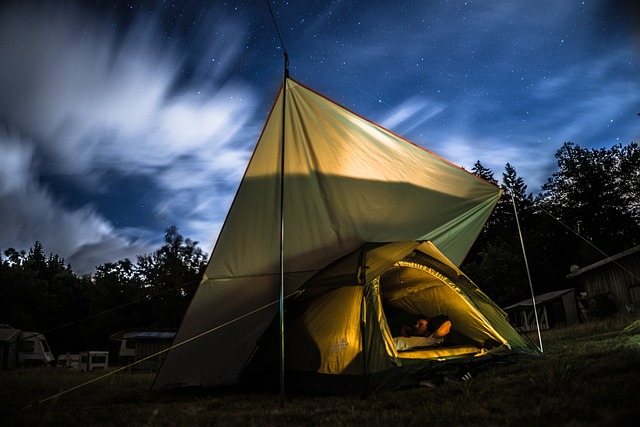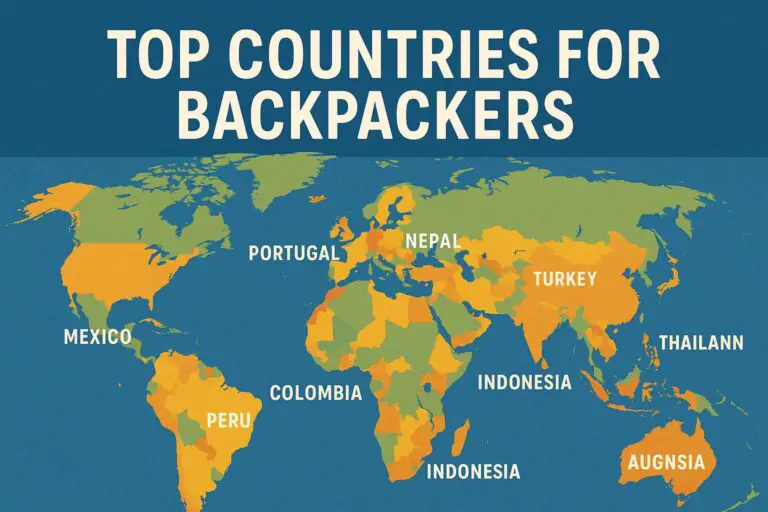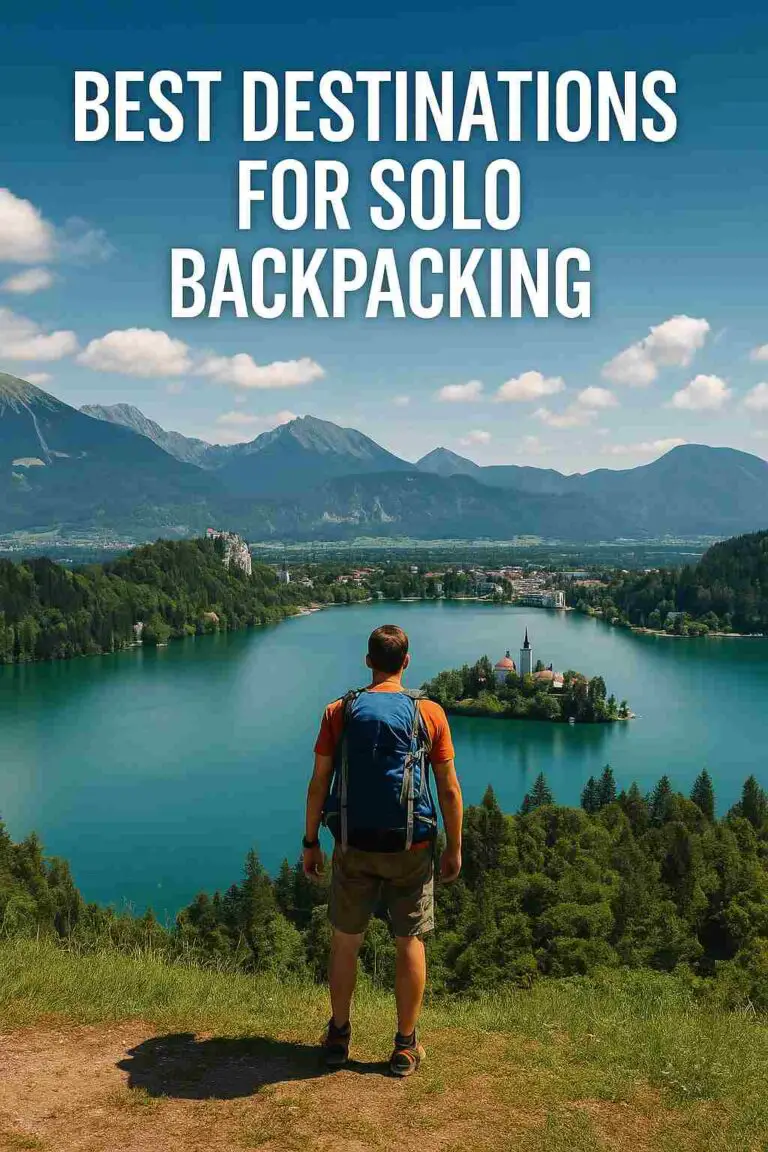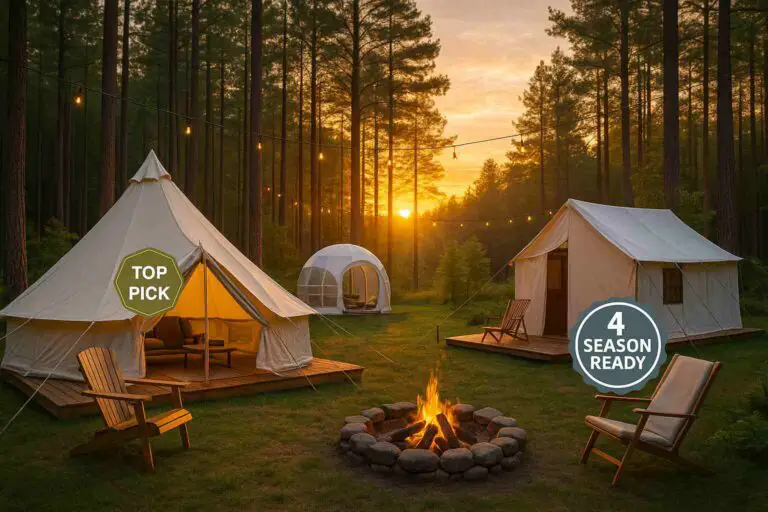Solo camping can be a truly rewarding experience, allowing you to disconnect from the hustle and bustle of everyday life and connect with nature. However, it’s crucial to have the right camping gear to ensure a safe and comfortable solo camping trip.
In this guide, I’ll go over the essential camping gear that solo campers should consider bringing with them on their next adventure. Whether you’re a seasoned solo camper or new to the experience, this guide will provide you with the necessary knowledge to ensure a successful trip. Let’s dive right in!
Shelter
When it comes to camping gear for solo campers, shelter is one of the most important considerations. Your shelter will provide protection from the elements and ensure you have a comfortable place to sleep. Here are some essential items to consider:
Tent options: There are several types of tents to consider, including:
- Backpacking tent – Lightweight and compact, backpacking tents are ideal for solo campers who plan to hike to their camping location.
- Dome tent – These tents offer more headroom and livable space, making them a good option for solo campers who prioritize comfort over weight.
- Single wall tent – These tents are lightweight and offer excellent protection from the elements but can be more expensive than other types.
Sleeping bags: Choosing the right sleeping bag is essential to ensure you stay warm and comfortable during your camping trip. Consider:
- Temperature ratings – Sleeping bags are rated by temperature, so it’s important to choose one that’s suitable for the climate you’ll be camping in.
- Types of insulation – Synthetic insulation is generally less expensive, dries quickly, and performs well in wet conditions. Down insulation is more expensive but offers a superior warmth-to-weight ratio.
- Recommended sleeping bags for solo campers – Look for a sleeping bag that’s lightweight, easy to pack, and fits your body size and shape.
Sleeping pads: Sleeping pads provide cushioning and insulation between you and the ground, helping you stay warm and comfortable while sleeping. Consider:
- Types of sleeping pads – There are two main types of sleeping pads: air and self-inflating. Air pads are lightweight and pack down small but can be less durable than self-inflating pads. Self-inflating pads are heavier but offer more cushioning and insulation.
- Recommended sleeping pads for solo campers – Look for a sleeping pad that’s lightweight, easy to pack, and provides adequate cushioning and insulation. Consider your camping location and climate when choosing a sleeping pad.
Navigation and Safety
Navigation and safety are crucial aspects of any camping trip, but they become even more important for solo campers who don’t have a partner to rely on. Here are some essential items to consider:
Maps and compasses: Even if you’re familiar with the area you’ll be camping in, it’s important to bring a map and compass in case you get lost. Consider:
- Types of maps – Topographic maps show the terrain and features of an area and are best for hiking and backpacking. Trail maps show the specific trails in an area and are better for day hikes.
- How to use a compass – Learning how to use a compass is essential for navigation. There are many online resources and classes available to help you learn this skill.
- Recommended maps and compasses for solo campers – Look for maps that are detailed and up-to-date. A quality compass should be durable and easy to use.
First-aid kits: Having a first-aid kit can be a lifesaver in case of injury or illness while camping. Consider:
- Essential items to include – Your first-aid kit should include items such as bandages, gauze, antiseptic wipes, pain relievers, and emergency medications.
- Recommended first-aid kits for solo campers – Look for a kit that’s lightweight and compact but includes all the essentials. Consider your camping location and potential hazards when choosing a first-aid kit.
Lighting: Having proper lighting is essential for navigating and staying safe while camping. Consider:
- Headlamps and flashlights – Headlamps are hands-free and allow you to see where you’re going while keeping your hands free. Flashlights are useful for illuminating larger areas.
- Recommended lighting options for solo campers – Look for lighting that’s lightweight and durable. A headlamp with adjustable brightness levels is ideal for camping.
Remember to bring spare batteries for your lighting and keep them in a waterproof container.
Cooking and Water
When camping, cooking, and water are essential considerations for ensuring you stay well-fed and hydrated. Here are some essential items to consider:
Stoves: A camping stove allows you to cook your meals without having to build a fire. Consider:
- Types of camping stoves – There are many types of camping stoves available, including canister stoves, liquid fuel stoves, and wood-burning stoves.
- Recommended stoves for solo campers – Look for a stove that’s lightweight, easy to use, and durable. Canister stoves are generally the easiest to use and are ideal for solo campers.
Cookware: Having the right cookware is essential for cooking your meals while camping. Consider:
- Types of camping cookware – There are many types of camping cookware available, including pots, pans, and utensils.
- Recommended cookware for solo campers – Look for cookware that’s lightweight, durable, and easy to clean. A small pot and pan set with a folding handle are ideal for solo campers.
Water filtration: Having access to clean water is essential for staying hydrated and healthy while camping. Consider:
- Types of water filters – There are many types of water filters available, including pump filters, gravity filters, and straw filters.
- Recommended water filters for solo campers – Look for a water filter that’s lightweight, easy to use, and effective at removing bacteria and other contaminants. A gravity filter or a straw filter is ideal for solo campers.
Remember to bring enough fuel for your stove and a backup water treatment method, such as water purification tablets, in case your water filter fails.
Clothing and Footwear
Having the right clothing and footwear is essential for staying comfortable and safe while camping. Here are some essential items to consider:
Layering system: A layering system involves wearing multiple layers of clothing to stay warm and dry. Consider:
- Base layer – This layer is next to your skin and should be moisture-wicking to keep you dry and comfortable.
- Mid layer – This layer provides insulation and should be warm and breathable.
- Outer layer – This layer protects you from the elements and should be waterproof and windproof.
Recommended clothing for solo campers: When choosing clothing for your camping trip, consider the weather and climate you’ll be camping in. Recommended items include:
- Moisture-wicking shirts and pants – These will keep you dry and comfortable.
- Fleece or down jackets – These provide warmth and insulation.
- Waterproof and windproof outer layers – These protect you from the elements.
Footwear: Having the right footwear is essential for staying comfortable and safe while hiking and camping. Consider:
- Hiking boots vs. trail runners – Hiking boots provide more support and protection, while trail runners are lightweight and more comfortable for some hikers.
- Recommended footwear for solo campers – Look for footwear that’s comfortable and fits well. Waterproof and breathable shoes are ideal for camping.
Remember to pack extra socks and bring a hat and gloves if camping in colder weather.
Conclusion
Proper preparation and the right camping gear are essential for a safe and comfortable camping trip, especially for solo campers who don’t have a partner to rely on. When packing for your next solo camping trip, be sure to consider the following essential items:
- Shelter, including a tent, sleeping bag, and sleeping pad.
- Navigation and safety gear, including maps, a compass, a first-aid kit, and lighting.
- Cooking and water gear, including a camping stove, cookware, and a water filter.
- Clothing and footwear suitable for the climate and terrain you’ll be camping in.
By ensuring you have the right camping gear for your solo trip, you’ll be able to fully enjoy your time in nature and stay safe and comfortable. Remember to plan ahead, double-check your gear before leaving, always practice Leave No Trace principles, and choose eco-friendly camping gear to minimize your impact on the environment.








